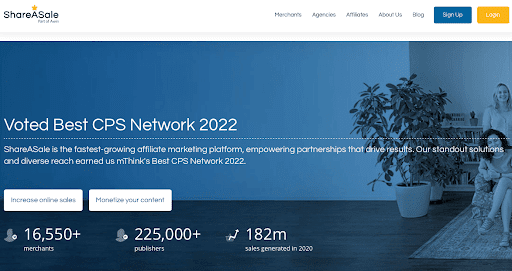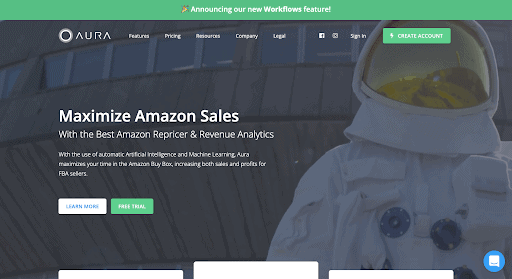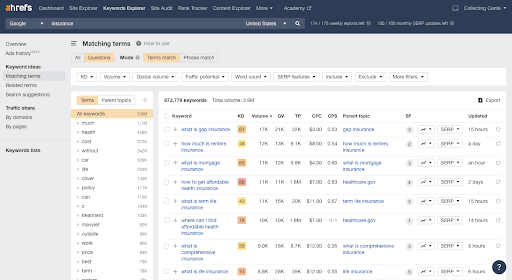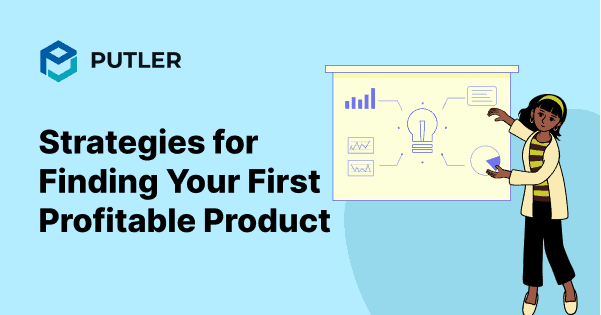When considering how to sell a product, arguably the most important step you’ll ever take is choosing that first product that will help you turn a profit and make money online. This is a challenge because the first product you choose might not be your first profitable one. And that can be discouraging. However, there are things you can do and strategies you can implement to improve the odds of your product selection being a runaway success.
But before we get into our full discussion of strategies to use, let’s first discuss the different types of products you can sell and a few problems you might run into along the way.
Types of products you can sell
The type of product you select will have a lot to do with your audience, your reach, and the platform you intend to use to make sales. But broadly speaking, your product options will fall into two categories: physical and digital. Let’s discuss a few examples of each now.
Physical products
Physical products span the gamut of human experience. But generally speaking, your physical products are likely to fall into one of these categories:
- Apparel & accessories
- Beauty
- Home & garden
- Health & fitness
- Sports & sporting goods
- Children & babies
- Consumer electronics
- Home improvement
- Pets
Of course, other categories exist, and how the products will get from you to the customer varies greatly, but these are the most popular ones and it’s likely you’re looking for a product to sell that has the potential to reach a wide audience, it will fall within one of these categories.
Digital products
Digital products, on the other hand, can cover any topic under the sun, but most often stick to a few tried and true formats, including:
- eBooks
- Online courses
- Online memberships that provide access to some kind of content
- Audio files or podcasts
- Images
- Videos
Again, what’s contained in each of these options varies greatly, but you are limited by what items can be transferred digitally.
Potential problems
Yes, selecting a good product to make your business profitable is important but the whole process is not without its problems. You may find yourself running into one or more of the following obstacles:
- Stiff competition. When you’re just starting, it can be intimidating to see an entire market filled with experienced brands offering products in your chosen niche.
- An oversaturated market. Similar to the above, an oversaturated market can make it very difficult to carve out a space for yourself in your niche. Too many competitors – even bad ones – can gunk up the works, so to speak, and leave you scrambling to climb to the top of the pile.
- A lack of distinguishing factors. Sometimes, your product selection just won’t be unique enough to make a splash. If it’s too much like what other people are already selling (or solves the same problems as their products), it’s much harder to set yourself apart.
- The product misses the niche mark. In some cases, the product you select for your chosen niche just won’t be right. Perhaps, you’re targeting too much of a micro experience. Or maybe the product doesn’t suit the niche at all. Either way, such a situation can leave you returning to the drawing board a time or two.
11 Ways to find a profitable product
With the introductory info out of the way (as well as a few caveats), we can dive right into the strategies that can best serve you in your hunt for your first profitable product.
Physical or digital?
As we discussed above, the two primary types of products you will likely consider are physical or digital. And which you opt for will be determined by the kind of business you want to run, the niche you’re exploring, as well as what resources you either have available or are willing to invest in.

For instance, digital products typically cost less money to produce and are a lower-risk investment. Often, you can create and distribute them yourself using an online store system, membership plugin, or learning management software.
If you’re leaning toward physical products, you will need an online store system too, but you’ll also need physical space to store your products. Will you be making the items yourself or sourcing them from a vendor? Or, if you opt for dropshipping, you’ll need to locate a product through a third-party system.
Consider your niche
The niche your current business operates in (or if you’re brand new, will operate in) is going to determine the product you select. After all, it would make no sense to try to sell pet accessories if your website is currently centered around business productivity, right?
So with your niche in mind, your product search is narrowed straight out of the gate. And that’s a good thing, as it gives you some concrete search terms to work with when trying to locate products. If you wish to go the affiliate route, you can browse through digital marketing programs like ClickBank or ShareASale for products that fit your niche that you can promote.

If you’re creating a digital product, jot down some ideas about what you think would best serve your target demographic. If you’re dropshipping, you can browse through Pexda to find a healthy list of products you can start selling immediately. Or if you want to make something yourself, think of how it will serve your customers. What will they get out of it? Does it fulfill a need or a want? Having these points in mind will help you tremendously when trying to whittle down the potential product list.
Consider products that solve problems
Often the best performing products are those that solve a problem of some kind. So, you can think about your own life and what you struggle with or evaluate what people in your niche often express in public. Social media is a good place to identify what potential customers struggle with. Reviews are helpful, too, as you can identify customer pain points.
For instance, let’s say you’re in the consumer electronics niche and you can’t stand how uncomfortable your smartwatch band is. A product that’s comfortable and more wearable might be a good solution to this problem.
Let trends serve you
Though being trendy can be exhausting, it sometimes really pays off, especially if you’re able to hop on a trend before it hits its peak. To do this, you’ll need to stay abreast of the latest trends in your niche. Set up news alerts and monitor popular hashtags to stay informed. And when it looks like a particular product type is about to take off, jump on it and ride the wave. It also allows you to claim what will soon be highly competitive keywords. Score!
Consider products that reward customers
Profitable products are also those that make customers feel rewarded. Whether it’s something that provides benefits for putting in hard work or it’s a product that fulfills that guilty-pleasure craving, finding something that makes people feel like they’ve earned it is always a win.
Reward-based products work best when they’re of extremely high quality. Think a delectable baked good made from the freshest ingredients or an online course that includes information compiled over an entire year. The quality makes the product feel like a real indulgence and it feels worth the money.
One of the top influencer strategies is to listen to your social following and you can leverage this tactic to get a handle on what your followers want in a product. This is an ideal place to conduct a poll, send out a survey, or even just take the proverbial temperature of your audience.

What do they want? What are they talking about? What’s causing them issues? What makes them happy? Employ your best active listening skills and you’ll walk away with a whole host of information you can apply to your product search – or product creation.
Consider delivery methods
How you want to deliver your product to your customers will play a direct role in what you ultimately end up selling, too. And the method you choose could result in varying degrees of passive income potential.
An online store with products that you make is not going to be a passive endeavor at all. However, an eCommerce setup featuring drop shipped products can be a bit more hands-off once you get established. The same goes for online courses and membership sites. Of course, for digital products, you will still need to engage in marketing efforts including new content creation, the use of email marketing platforms, and continued SEO optimization to maintain your current level of success.
Let your interests guide you
No matter the niche you’re involved with, letting your passions dictate your choices is more often than not the correct way to go about things. Your interests are what you read about in your spare time; what you think about when lying in bed at night. You’re going to bring an inherent level of passion to your decision-making. And if you’re writing your own copy, can you imagine how much more engaging your product descriptions will be when written from a real place of knowledge?
And not just that – your passion will have a way of leaping off the page. Authenticity can take you far, no matter what products you’re selling.
Leverage your expertise
Similar to following your interests and passions, so too should you use your expertise whenever you get the chance.
For instance, if you’re an avid gardener and you know which pruning shears are best, you can use that expertise to select the best product to offer your customers. You know the customer’s pain points – because you are one.
This point also logically extends to companies when they decide to create products.
For example, Aura, a company that is already a service-based business model could further diversify its income streams by selling ebooks that break down how to boost Amazon sales or list products on Amazon as a newbie.

If you own a company, you should also engage with your employees and ask them what they think could be a profitable business opportunity.
For example, your head of sales could come up with a great idea for a product that may not have occurred to you simply thanks to their individual experience.
Conduct keyword research for ideas
When struggling to figure out how to sell a product and how to find one that will help you make money, a good place to start is often with keyword research. Just like with social media monitoring, keyword research can give you a sense of what people are looking for more broadly as well as what specific questions people have.
Use a tool like Ahrefs or SEMRush to find keywords and related phrases that point to what potential customers might be interested in.

So, for example, if you are in the insurance business, you could put in the word insurance on Ahrefs and see what comes up in the ‘matching terms’ section:

From this data, we can see what a large issue health insurance is for people. A lot of questions people are searching for (with a large amount of traffic volume) are related to health insurance.
This gives you a general idea of where to start with your product and allows you to begin working on something for which demand already exists.
Keep Your Ear to the Ground
Lastly, sometimes finding the first product that will help you to turn a profit is as simple as keeping aware of your surroundings. Stay involved in your niche. Participate in communities. Engage on social media threads. And more than anything else, listen. You’re bound to happen across something that’s about to become the next big thing before long.

- Pricing Strategies: Step by step guide to price your products right
- BFCM strategies: Make data-driven business decisions quickly using Putler
- 25 Experts Reveal their Ultimate Strategies for Data Analysis in 2023
- Psychological Pricing Strategies – Top 10 Ways To Increase Sales

It’s nearly impossible to find well-informed people about this topic, but you seem like you know what you’re talking about! Thanks|